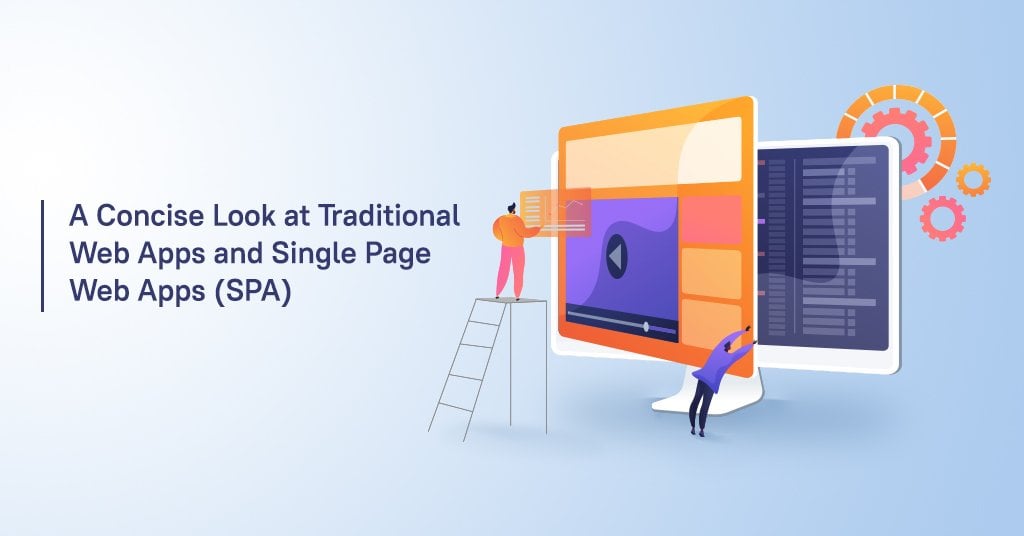While traditional web app development is more commonly used, single-page application (SPA) is the new trend. SPA is a web application or website in which the existing web page is rewritten dynamically with new data from the web server when the user interacts with it. This is unlike the default method used in traditional web apps where the browser loads entire new pages. The purpose is faster transition that gives the feel of a native app to the website user.
Web application building
Most businesses use traditional web applications or single page web applications (SPA) for their online presence. There are no concrete pros or cons for either traditional or SPA. A judicious combination can help businesses benefit from the advantages that each provides. Here are some points to consider:
| Traditional Web Applications | Single Page Applications |
|---|---|
| Application logic is performed on the server | Most of the user interface logic is performed on web browser |
| Best used when requirements are non-complex in terms of user interface | Best used to provide a rich user experience |
| Not necessary for your staff to know JavaScript techniques | Important for your staff to understand JavaScript development |
| Need greater architecture and security expertise | |
| Frequent updates required |
SPA frameworks are often preferred for a better and richer user experience. However, you should carefully compare an SPA deliverable with the difficulties of configuring automated build and deploy processes. A traditional web approach is less complicated in this regard. Besides, given the need to keep SPAs updated and upgraded, businesses may experience what is referred to as ‘higher churn,’ where users may stop using particular apps because they are out of date.
Considering professional assistance

Given the technical details involved in web application development, it makes sense to reach out to professionals. Here are some benefits you can get from professional web application development:
- Technical deployment is left to the experts. The business owner can focus on business-building activities.
- Professionals bring expertise, skills, and experience to web development. They can help you design and deploy the most relevant web apps for your unique business needs.
- Professionals can be tasked with repairs, troubleshooting, and maintenance of the apps. This translates to significant savings in terms of money and time for the business owners.
- Capital investments, usually a challenge for startups and small businesses, are unnecessary. Instead of the need to create in-house expertise, your professional partner provides all required technology.
Next Steps
- Learn more about professional web app development and how it can streamline your business operations and boost growth and profitability at cost-effective rates.
- Email us at sales@analytix.com or call us on 781.503.9003 today.
- Follow our blog for industry trends and the latest updates.
- Engage with us on LinkedIn and Twitter.
